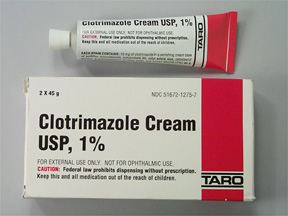
Clotrimazole Anti-fungal Coupons & Savings Card – Discount Prices from $5.58
Brand for: Clotrimazole
My prescription
Edit
14.2GM of 1%, Clotrimazole (1 Tube)
Select pharmacy

CVS
$19.59
COUPON PRICE
Walmart
$5.58
COUPON PRICE
Albertsons
$7.50
COUPON PRICE
Walgreens
$10.36
COUPON PRICEClotrimazole Anti-fungal savings card
Show this card to your pharmacist
Walmart
$5.58
BIN
ID
PCN
GRP
019876
LH9E192162
CHIPPO
LHX
Powered by
More prescriptions for yeast infection
More prescriptions for yeast infection
Price history for Clotrimazole Anti-fungal (brand) & Clotrimazole (generic)
1 Tube, 14.2GM
Average retail price for Clotrimazole Anti-fungal
Average retail price for Clotrimazole
Average SaveHealth price for Clotrimazole
Our price history data is based on aggregated prescription data collected from participating pharmacies in America. Our prescription data updates daily to reflect the latest price changes. If you notice a missing data point, it means there wasn't sufficient data available to generate a monetary value for that date.
Over the last 12 months, the average discount price of Clotrimazole Anti-fungal is $14.79 using the SaveHealth savings card. That's an average savings of 33.94% on Clotrimazole Anti-fungal with our discount card.
*Retail prices are based on pharmacy claims data, and may not be accurate when we don't have enough claims.
Clotrimazole Anti-fungal (Clotrimazole) dosage forms
Dosage Quantity Price from Per unit 14.2GM 1 Tube $5.58 $5.58 14.2GM 2 Tubes $8.67 $4.33 14.2GM 3 Tubes $11.75 $3.92
| Dosage | Quantity | Price from | Per unit |
|---|---|---|---|
| 14.2GM | 1 Tube | $5.58 | $5.58 |
| 14.2GM | 2 Tubes | $8.67 | $4.33 |
| 14.2GM | 3 Tubes | $11.75 | $3.92 |
When should you not use clotrimazole?
Clotrimazole should not be used by individuals who are allergic to it or any of its components. It is also advisable to avoid using clotrimazole on broken or irritated skin unless directed by a healthcare provider. Pregnant or breastfeeding individuals should consult a healthcare professional before using clotrimazole. Additionally, it should not be used in the eyes, mouth, or on the face. If symptoms persist or worsen, it is important to seek medical advice.
Is clotrimazole cream safe for private parts?
Clotrimazole cream is generally considered safe for use on the external genital area to treat fungal infections such as yeast infections. However, it is important to follow the instructions provided by a healthcare professional or the product packaging. If there is any irritation or if symptoms persist, it is advisable to consult a healthcare provider.
What skin conditions does clotrimazole treat?
Clotrimazole is used to treat various fungal skin infections, including athlete's foot, jock itch, ringworm, and yeast infections of the skin.
